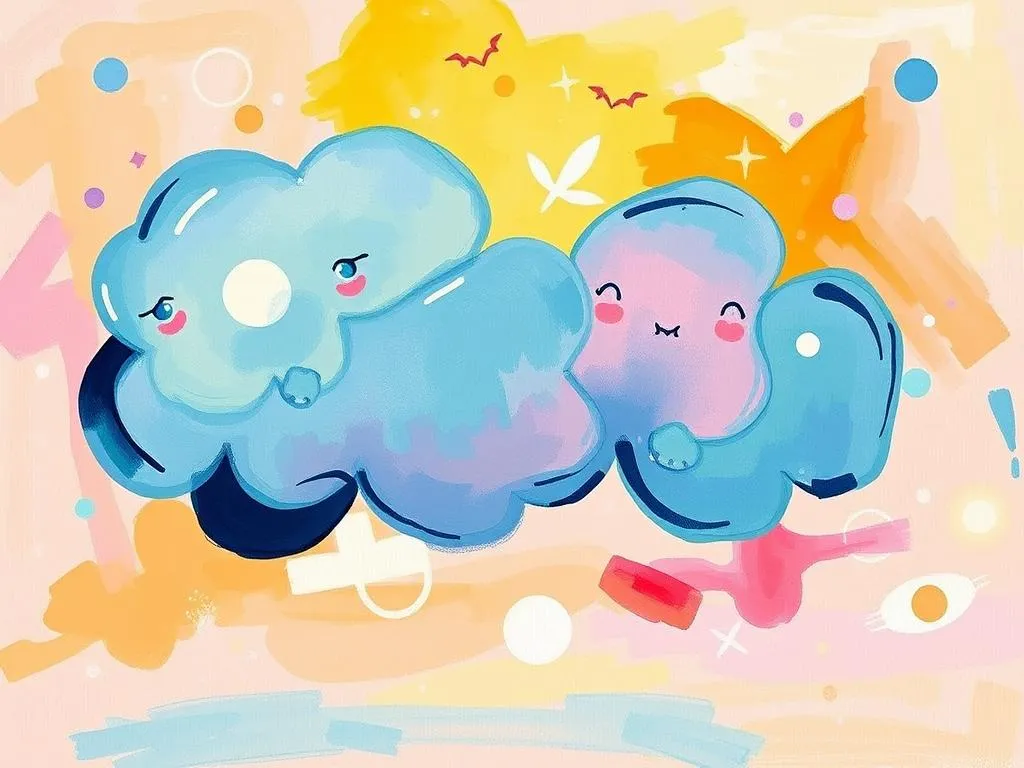
Introduction
Dreams have long fascinated humanity, serving as a bridge between our conscious and subconscious minds. They hold a mirror to our innermost thoughts, fears, and desires, often conveying messages that we may not fully understand while awake. The phenomenon of dream interpretation has captured the interest of scholars, psychologists, and everyday individuals alike, as dreams can provide valuable insights into our waking lives. The intricate symbols and narratives that transpire during our sleep can reveal our emotional state, highlight unresolved conflicts, or even offer a glimpse into our aspirations. This article delves into the world of dream symbolism, focusing on how common themes and scenarios can be interpreted to enhance our self-awareness and personal growth.
Symbolism and Meaning
When we analyze the symbols found in our dreams, we often uncover layers of meaning that resonate deeply with our experiences and emotions. For instance, water is a prevalent symbol in dreams, often representing emotions and the unconscious mind. A tranquil lake may suggest calmness and clarity, while turbulent waves could signify emotional turmoil or overwhelm. In contrast, flying is frequently associated with freedom and escape. The ability to soar through the skies can embody a desire to rise above challenges or break free from constraints in one’s life.
Another common symbol is houses, which often reflect the dreamer’s self-perception and state of mind. Different rooms can represent various aspects of the self—such as the living room symbolizing social life and the basement encapsulating hidden fears or secrets. The condition of the house may offer insight into how the individual feels about their personal life and stability.
In dreams of chasing or being chased, the dynamics can shift depending on the identity of the pursuer. If one is being chased by a faceless entity, this can symbolize unresolved anxiety or fear of the unknown. Conversely, pursuing a specific goal or vision may highlight ambition and determination, especially if the dreamer feels a sense of urgency.
The interpretations of these symbols can vary greatly based on personal experiences and cultural backgrounds. For example, a snake might evoke fear or danger in one person, while it could signify transformation and healing in another, drawing from its associations with shedding skin and renewal. Thus, the significance of dream symbols is often subjective, shaped by individual experiences and emotions.
Key Scenarios and Variations
Dreams can take on a multitude of forms and scenarios, each providing a unique context for interpretation. One prevalent scenario is the nightmare, often filled with feelings of fear, dread, or helplessness. Nightmares can serve as a manifestation of repressed feelings or past traumas, pushing the dreamer to confront what they may have been avoiding in their waking life. For instance, dreaming of falling can indicate a fear of failure or loss of control, while being trapped may symbolize feelings of restriction or entrapment in a certain situation.
Conversely, lucid dreaming—where the dreamer becomes aware that they are dreaming and can often control the narrative—can lead to experiences of empowerment and exploration. This scenario allows individuals to confront fears, practice skills, or indulge in creativity. The shift from passive observer to active participant can transform the dream experience into a platform for personal development.
Another interesting variation is the recurring dream, which often signals unresolved issues or persistent concerns in the dreamer’s life. These dreams may present similar themes, such as being unprepared for an exam or facing an imminent disaster. The recurrence emphasizes the importance of addressing the underlying emotions or situations that may be causing anxiety or stress.
In some cases, dreams can also reflect more mundane aspects of life, such as work-related stress. Dreaming of being late for a meeting or forgetting important documents can indicate feelings of inadequacy or pressure associated with professional responsibilities. These scenarios serve as a reminder to evaluate one’s work-life balance and stress management strategies.
The context of the dream plays a crucial role in shaping its meaning. For example, a dream involving a celebration may indicate feelings of joy and accomplishment, while a dream about loss could highlight feelings of grief or nostalgia. The emotional tone of the dream, alongside its symbols and scenarios, provides a comprehensive framework for understanding its significance.
Real-Life Connections and Takeaways
Reflecting on dreams can unveil profound connections to our waking lives, offering insights that promote self-awareness and personal growth. To begin this reflective journey, it is essential to keep a dream journal. Recording dreams immediately upon waking can help capture fleeting details and emotions, allowing for a more accurate interpretation later. By reviewing these entries, individuals can identify patterns and recurring symbols that may reveal deeper truths about their emotional state and life circumstances.
One practical approach to interpreting dreams is to ask oneself a series of questions. For instance, “What emotions did I experience during the dream?” or “What events in my waking life resonate with the dream’s themes?” This self-inquiry can lead to valuable insights, drawing connections between the dream narrative and real-life situations.
Moreover, actively engaging with the symbols and scenarios present in dreams can foster a deeper understanding of oneself. For example, if a dream frequently features a specific location or person, reflecting on the significance of that element can provide clarity on underlying feelings or unresolved issues. Engaging with these elements can also help individuals confront their fears or aspirations, leading to personal transformation and empowerment.
It’s also beneficial to consider how dreams might serve as a catalyst for change. They can highlight areas in life that require attention or adjustment. If dreaming about being unprepared for a significant event, it may prompt one to reassess priorities or take proactive measures. This alignment of dreams with waking life can pave the way for actionable steps toward personal growth and fulfillment.
Lastly, understanding the role of emotions in dreams can help individuals cultivate emotional intelligence. Recognizing that emotions experienced in dreams often mirror those felt in waking life can enhance emotional awareness and processing. Establishing a connection between the two realms can empower individuals to navigate their feelings more effectively.
In summary, dreams serve as a rich tapestry of symbols and narratives, offering a profound window into our subconscious. By engaging in self-reflection and interpreting the meanings behind our dreams, we can unlock pathways to greater self-awareness and personal growth. Whether through keeping a dream journal, asking introspective questions, or engaging with the emotions presented in dreams, individuals can harness the insights gained from their dream symbols to navigate their waking lives with increased clarity and purpose.
As you explore your own dream symbols and scenarios, take the time to reflect personally on what resonates with you. What messages might your dreams be conveying? How can these insights inform your journey towards self-discovery and fulfillment? Embrace the opportunity to delve deeper into your inner world, for the answers may lie within the dreams that grace your night.







